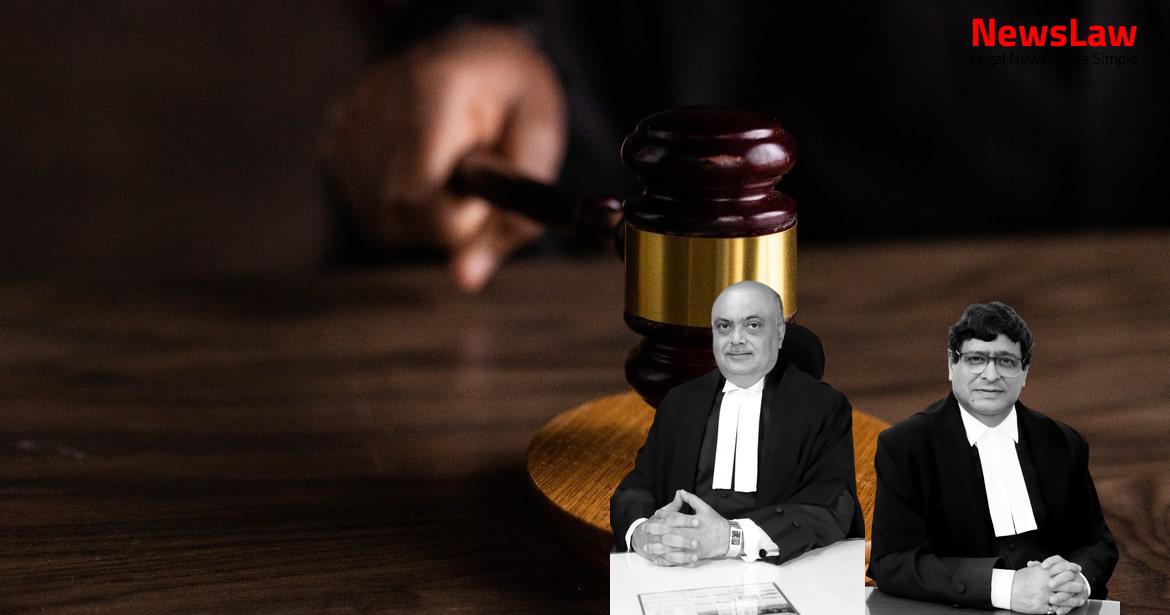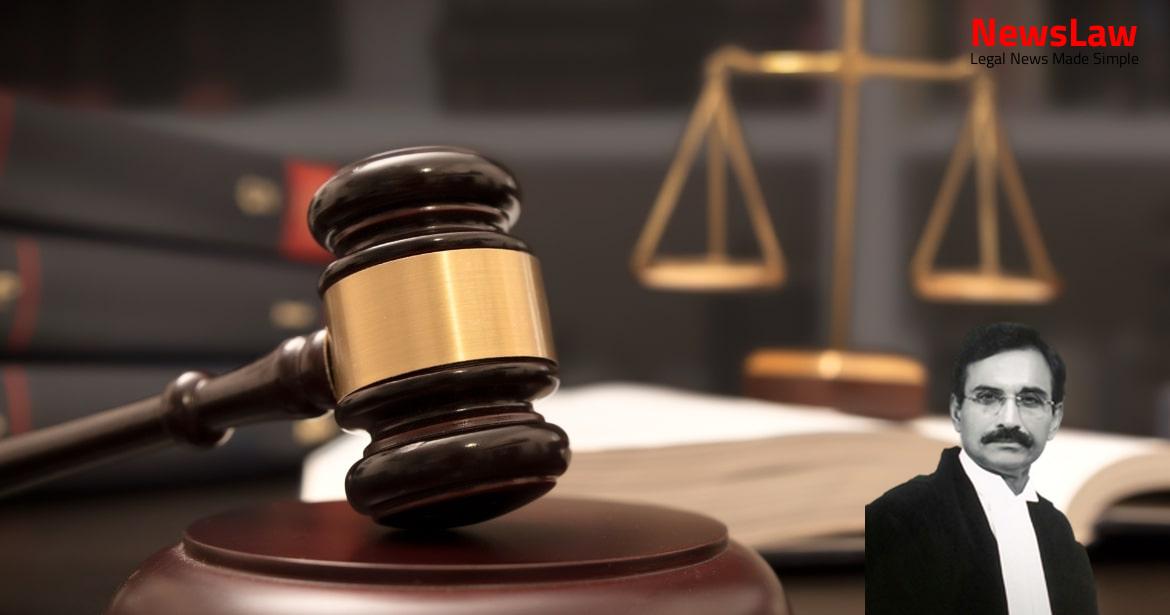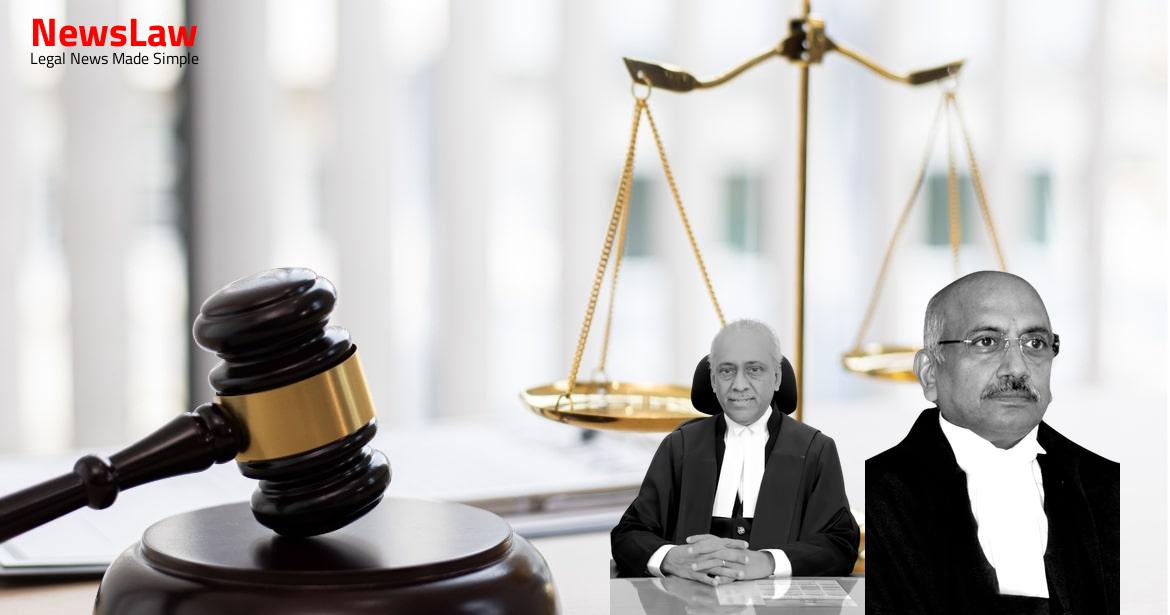Explore the detailed legal analysis conducted by the Supreme Court of India in an election petition alleging corrupt practices. The case involves a challenge raised by the Respondent regarding the election of the MLA from Saikul Assembly Constituency. The Supreme Court’s judgment provides insights into the requirements for filing election petitions and the examination of allegations related to income disclosure and corrupt practices. Stay tuned for a comprehensive overview of the legal proceedings and outcomes in this significant electoral dispute.
Facts
- The appellant, an MLA elected from Saikul Assembly Constituency, challenged by Respondent, also a contestant.
- Respondent filed Election Petition claiming appellant did not disclose assets and indulged in corrupt practices.
- Appellant filed application under Order VII Rule 11 of CPC and Section 86 of RPA for rejection of petition.
- High Court dismissed appellant’s application.
- Appellant moved another application under Order VII Rule 11 for rejection on the grounds of no cause of action.
- High Court dismissed this application as well.
- Presently under challenge before the Court.
- The High Court held that the appellant’s income status and declaration during nomination require further examination in trial.
- Evidence needs to be presented by both parties and examined by the Court to determine the accuracy of the appellant’s declaration.
- The issue of whether the appellant provided incorrect information during nomination is to be addressed during the trial process.
Also Read: Landmark Supreme Court Judgment in the Case of Compassionate Appointment vs. Termination
Arguments
- Respondent raised grounds challenging the election of the appellant.
- First ground was for improperly accepting the nomination paper despite concealment of assets and investments in land development.
- Second ground was for concealing total income for Financial Year 2021-22 while serving as a Committee Officer.
Also Read: Judgment on CAS Benefits for Research Assistants – Supreme Court Ruling
Analysis
- An affidavit is required as per the proviso to Section 83(1)(c) of RPA in Form 25 as per Conduct of Election Rules, 1961.
- The affidavit must be sworn before a magistrate of the first class, a notary, or a commissioner of oaths.
- The affidavit must contain specific statements regarding the commission of corrupt practices by the appellant.
- The Election Petition should not be summarily dismissed for non-compliance, but should be considered based on substantial compliance with legal requirements.
- Statutory compliances regarding the details of corrupt practices and material information must be furnished in the Election Petition.
- Deviation from the requirements does not automatically lead to dismissal of the petition at the threshold.
- The petition presents a disclosed cause of action based on the allegations made by the respondent.
- An Election Petition should contain a concise statement of material facts.
- Particulars of any corrupt practices alleged against the returned candidate must be included.
- The petition must provide full details of the corrupt practices, including names of parties involved, and dates and places of such practices.
- The petition must be signed by the petitioner and verified in accordance with the Code of Civil Procedure, 1908.
- If any corrupt practices are alleged, the petition must be accompanied by an affidavit in the prescribed form to support these allegations.
- In the case of Thangjam Arunkumar v. Yumkham Erabot Singh, 2023 SCC OnLine SC 1058, the Supreme Court upheld the dismissal of the returning candidate’s Order VII Rule 11 application by the Manipur High Court in an Election Petition.
- The Court applied the test laid down in Siddeshwar and held that the requirement to file an affidavit under the proviso to Section 83(1)(c) is not mandatory.
- Substantial compliance is sufficient
- Defect is curable
- Opportunity may be granted to file necessary affidavit
- No interference with the finding of High Court of Manipur
Also Read: Supreme Court Judgement: Settlement Agreement between Parties in a Cheque Dishonour Case
Decision
- Interim order(s) to be vacated
- Pending application(s) to be disposed of
- Election Petition found to disclose a cause of action
- Substantial compliance with RPA requirements noted
- Petition cannot be dismissed under Order VII Rule 11 CPC
- Appeal dismissed
Case Title: KIMNEO HAOKIP HANGSHING Vs. KENN RAIKHAN (2024 INSC 689)
Case Number: C.A. No.-010549-010549 – 2024



